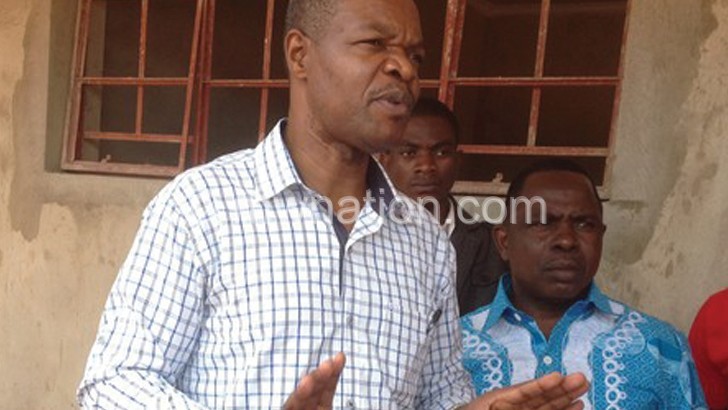Egenco completes MZ gensets project
The Electricity Generation Company (Egenco) has commissioned the final genset at Luwinga in Mzuzu, completing the six megawatts (MW) to be contributed to the national grid.
There are three gensets at the site, each contributing two MW. The first was commissioned on December 31 2017, the second last Friday, and the third on Monday.
In an interview yesterday, Egenco chief executive officer William Liabunya said the gensets will be switched on from Monday to Friday for four hours each day.

Government deploys 1 200
He said: “We will run them continuously when there is no power, but the plan and the budget is that we should run them [gensets] four hours a day because we expect that the shortfall comes in two hours in the morning and two hours in the evening.
“These four hours are the ones that we budgeted for, and to run them during the week. On weekends there is usually no shortfall of power, so we have planned for five days in a week to sustain the shortfalls during the peaks of the morning and evening.”
However, Liabunya said the gensets will also run throughout the day to supply power to essential services only when there is prolonged blackout in the North.
It was discovered during the tour of the site last Friday that the gensets are using at least 560 litres of diesel per hour.
This means if the six MW is added to the grid, it will cost Egenco about K7.3 million per day.
Meanwhile, Liabunya has said Egenco will later this month sign an agreement with a German firm, Fichtner, to carry out a study on the Wovwe Power Station in Karonga.
The study is aimed at determining whether the plant commissioned in 1995 can produce an extra 4.5MW, the station has three machines that produce 4.5MW and supplies electricity to Karonga, Chitipa, Rumphi and some parts of Mzuzu.
Besides Wovwe, other power stations in the country are Kapichira, Nkula A, Nkula B Tedzani I, Tedzani II Tedzani III, and Tedzani IV.
All these are Run-of-River power stations–the type of hydroelectric generation plant where little or no water storage is provided. The running water is diverted from a flowing river and guided down a
channel which leads to a generating house.
Government is also doing feasibility studies at Fufu on South Rukuru River with the potential capacity of 120MW, Mpatamanga Gorge with a capacity of 300MW, Kholombidzo Falls with a capacity of 150MW.
Chimugonda with a capacity of 60MW and Kam’mwamba Thermal-Powered Plant with the capacity of 300MW. n





